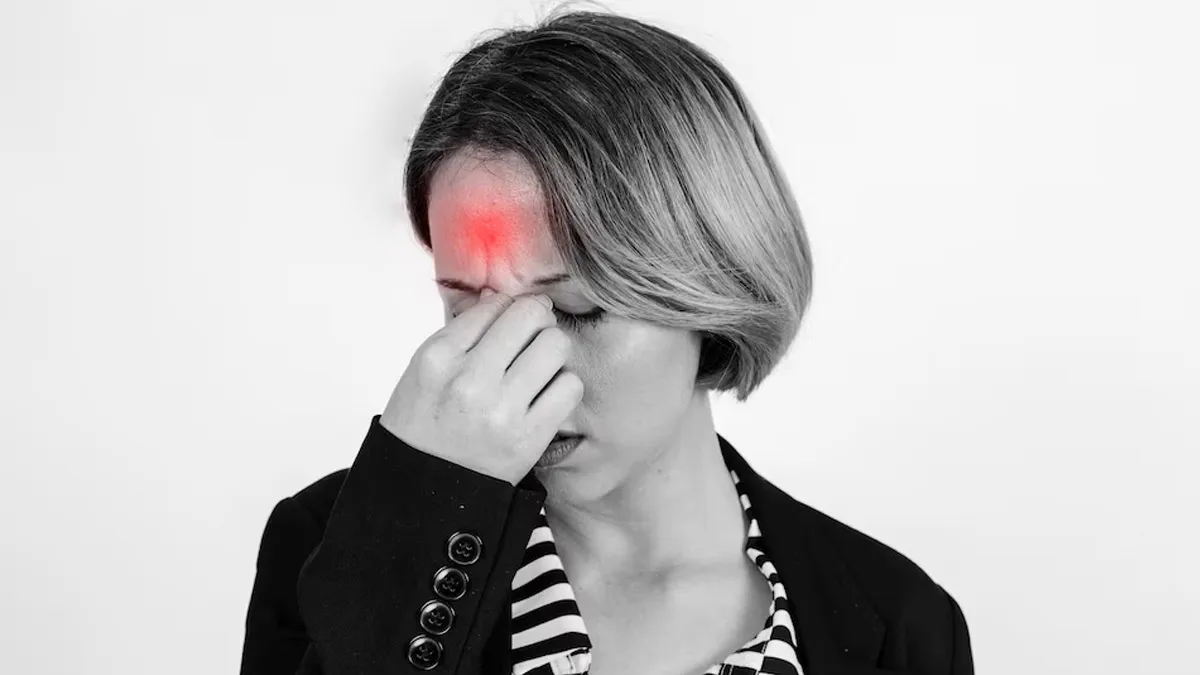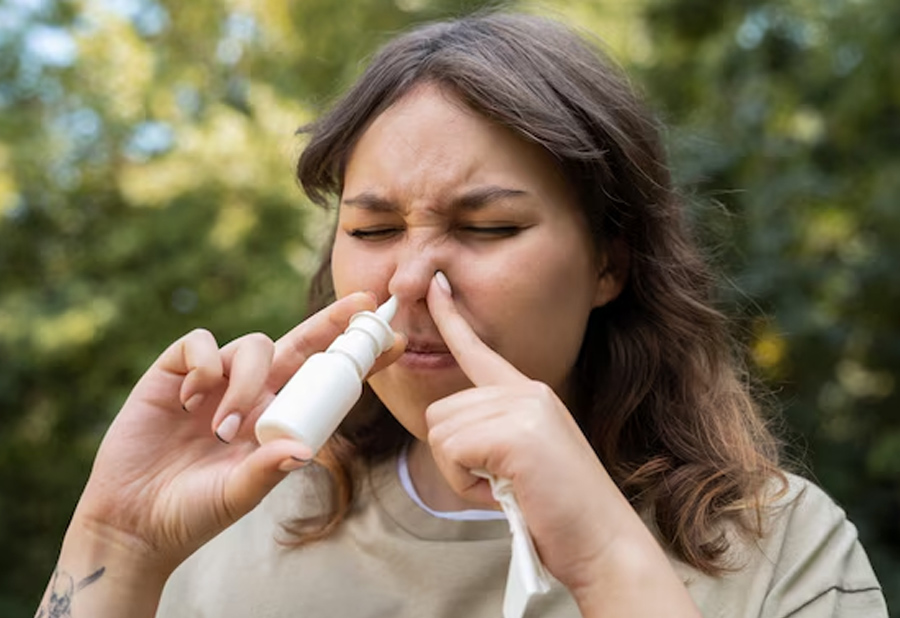
Headaches can strike anytime and for various reasons. From stress and viral infections to dehydration and hormonal changes, several factors can trigger a headache. Another common yet often overlooked cause is allergies, which occur when the immune system reacts to allergens like dust, pollen, or pet dander.
Table of Content:-
While allergies typically present with symptoms like a runny or stuffy nose, sneezing, coughing, itchy, watery eyes, or even skin issues, some people also experience pain and pressure around their sinuses, including the forehead. This can lead to what’s known as an allergy headache.
But how can you tell an allergy headache apart from other types of headaches? To answer the same, the OnlyMyHealth team spoke with Dr Kadam Nagpal, Head—Neuroimmunology and Senior Neurologist, Salubritas Medical Centre, New Delhi.
Also Read: Can Migraine Lead To Aphasia? How Severe Headaches Affect Your Ability to Communicate
What Are The Common Characteristics Of An Allergy Headache?

“An allergy headache, also known as a post-sinusitis headache, usually presents as a dull, throbbing pain in the forehead, around the eyes, or in the sinuses,” said Dr Nagpal. He added that the pain is often accompanied by symptoms like nasal congestion, watery eyes, and sneezing.
Allergy headaches usually occur when exposed to pollen, dust mites, mould, pet dander, and strong odours, such as perfumes or smoke. Food allergies, particularly to dairy, chocolate, nuts, and artificial additives, can also trigger headaches in some individuals. Not to mention the environmental factors, such as air pollution and sudden weather changes, which may worsen symptoms.
Allergy Headaches Vs. Migraines Vs. Tension Headaches

Unlike migraines, allergy headaches do not typically cause nausea, vomiting, or sensitivity to light and sound. However, research suggests that allergies can trigger migraines through inflammation and histamine release.
A 2012 study published in the Journal of Research in Medical Sciences found that up to 37% of people with allergies report migraine attacks compared to only 5% of those without allergies.
Tension headaches, on the other hand, feel like a tight band around the head and are not usually linked to sinus issues or allergens. They are most commonly caused by stress, muscle tension in the neck, poor posture, and sometimes factors like lack of sleep, caffeine withdrawal, eye strain, or jaw clenching.
Also Read: What Does A Headache On The Right Side Of Your Head Mean?
Can Allergy Headaches Be Seasonal?
Allergy headaches can be seasonal, especially during spring and fall when pollen levels are high, Dr Nagpal noted.
According to him, those with hay fever are more likely to experience these headaches.
Allergy headaches are closely linked to sinus congestion and inflammation. When the sinuses become swollen due to an allergic reaction, they put pressure on the surrounding areas, leading to pain and discomfort.
What Treatments Or Home Remedies Can Provide Relief From Allergy Headaches?
-1739953112484.jpg)
To relieve allergy headaches, identifying and avoiding triggers is essential. Here are some effective treatments and remedies:
Antihistamines: These medications help reduce allergic reactions and prevent headaches.
Decongestants: Over-the-counter nasal sprays and tablets can relieve sinus pressure and reduce headache pain.
Saline nasal irrigation: Using a saline rinse or a neti pot can help clear allergens and mucus from the nasal passages.
Hydration: Drinking plenty of water helps flush out allergens from the body and keeps sinuses from becoming too dry.
Steam therapy: Inhaling steam from a bowl of hot water or taking a warm shower can open up nasal passages and provide relief.
Essential oils: Peppermint or eucalyptus oil, when inhaled or applied to the temples, may help ease headache symptoms.
Dietary changes: Avoiding known food triggers can help prevent allergy-related headaches.
When To See A Doctor For Allergy Headaches?
Allergy headaches can often resolve on their own if the exposure to the allergen is reduced or eliminated. However, if this type of headache persists despite allergy treatment, or if they become severe and interfere with daily activities, you should visit the doctor in a timely manner, advised Dr Nagpal.
A medical professional can perform allergy testing to identify specific triggers and recommend appropriate treatments. If headaches are accompanied by high fever, vision changes, or neurological symptoms, immediate medical attention is necessary to rule out other serious conditions, he concluded.
Also watch this video
How we keep this article up to date:
We work with experts and keep a close eye on the latest in health and wellness. Whenever there is a new research or helpful information, we update our articles with accurate and useful advice.
Current Version